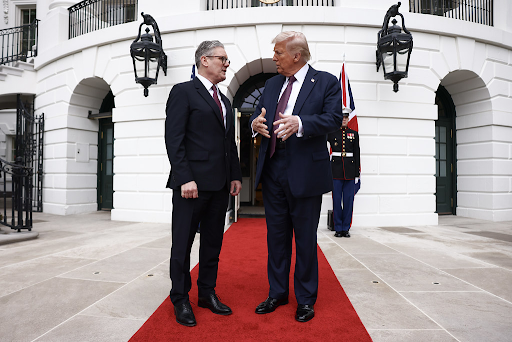Despite the formal pomp of a state visit, a chilly diplomatic exchange unfolded in London on Thursday over the issue of Palestinian statehood. President Donald Trump publicly voiced his opposition to the United Kingdom’s plan for unilateral recognition, creating an awkward but significant moment alongside Prime Minister Keir Starmer and revealing a stark clash of policies.
The U.S. President held the line on his administration’s established policy, which views Palestinian statehood as the final, crowning achievement of a successful peace negotiation, not a step along the way. Trump’s “disagreement” is consistent with his administration’s broader approach, which was highlighted by its recent opposition to a UN resolution supporting a two-state solution that was backed by a vast majority of nations.
Prime Minister Starmer, in a carefully calibrated response, sought to de-escalate the tension while holding his ground. He framed the UK’s proposed recognition as a pragmatic and necessary “catalyst” aimed at breaking the cycle of violence and failed negotiations. His argument is that changing the diplomatic status of Palestine is a tool to be used to build peace, not a reward to be given after the fact.
This incident brings a critical debate within Western foreign policy into the open. Is the path to peace paved by withholding the ultimate prize until all conditions are met, as the U.S. insists? Or can progress be made by granting the prize upfront to create a new, more hopeful reality, as the UK now suggests? The two allies are now on opposite sides of this fundamental question.
The decision by Starmer to delay the policy’s rollout until after Trump’s visit is a classic diplomatic maneuver to save face and preserve the relationship. However, the exchange itself has sent a clear signal: the UK is preparing to diverge from the U.S. on a key element of Middle East policy, a move that could have long-term implications for the “special relationship.”
A Chilly Exchange in London: US and UK Clash on Palestine
20

